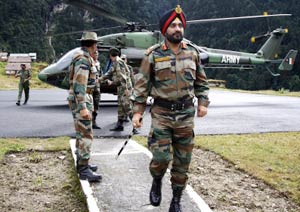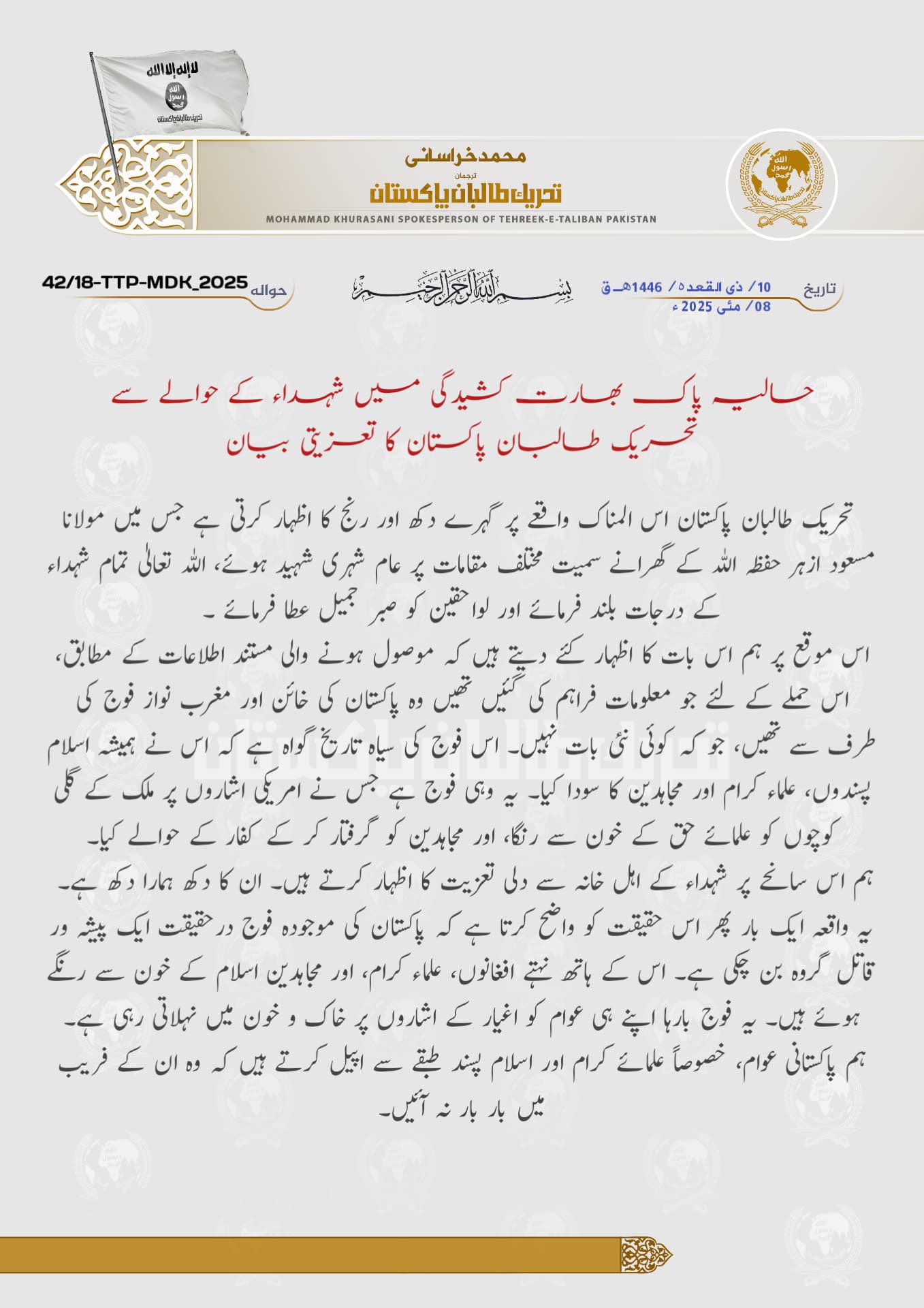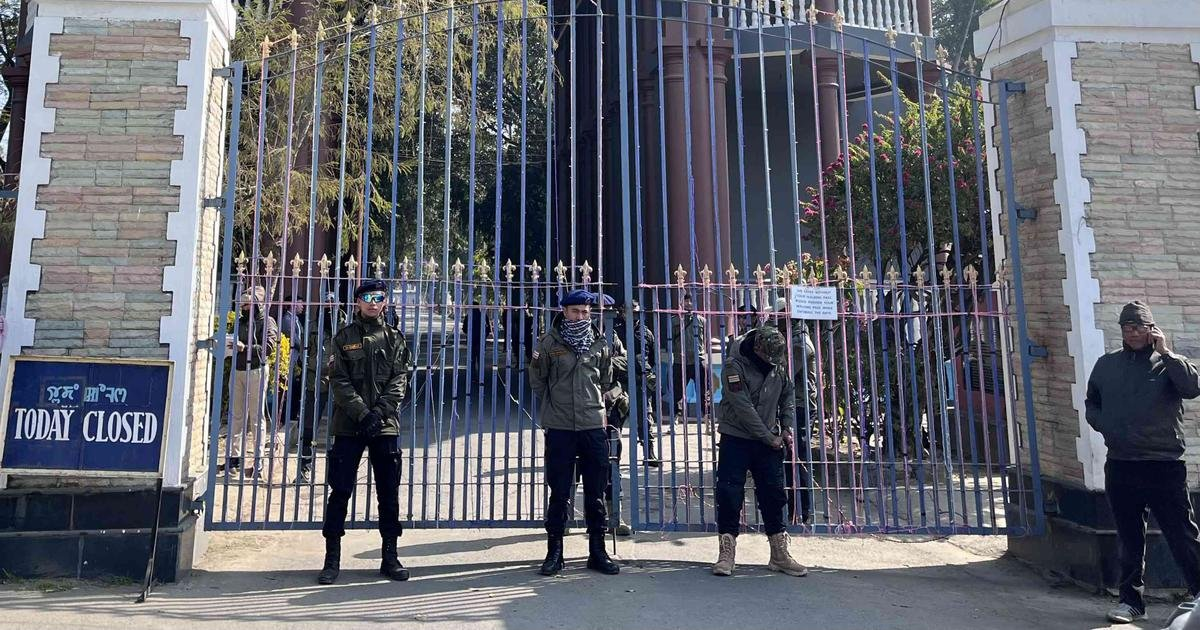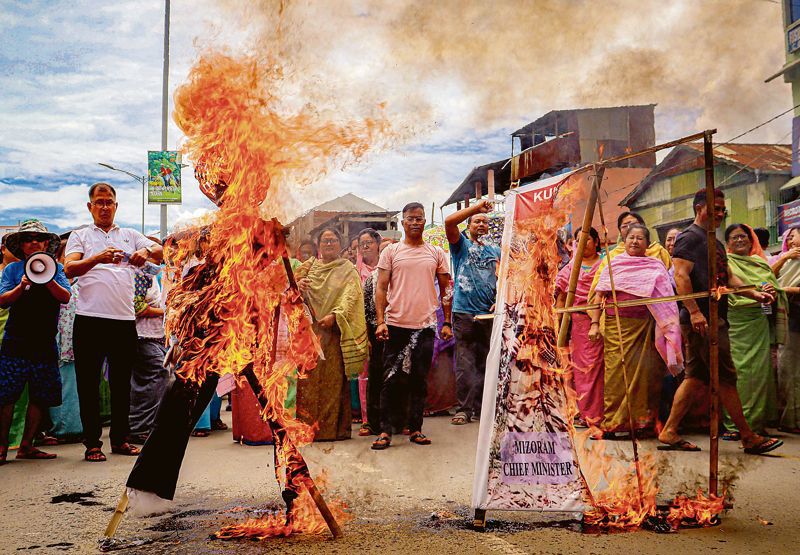
Fears of a Militant Resurgence Loom in Kashmir as Territorial Dispute is Revived at UN Forum
Fears of a Militant Resurgence Loom in Kashmir as Territorial Dispute is Revived at UN Forum
The security situation in the Jammu & Kashmir (J&K) state of India has reached a new low in the past few months as militant organizations backed by Islamabad have stepped up a campaign of politically-motivated violence by targeting vital infrastructure in the region and attacking civil society members. The region’s status remains disputed by Pakistan, which refers to J&K as “Indian-occupied Kashmir.” In what seems to be a shift in terrorist tactics, the militants have begun focusing on soft targets such as workers, engineers and village-level political representatives.
On September 23, armed militants in Kashmir’s Baramulla District shot and killed local headman Mohammad Shafi Teli, affiliated to the ruling Jammu and Kashmir National Conference (JKNC). Earlier in the month, Ghulam Mohammad Yatoo, sarpanch (elected village chief) of Raipora village, was killed on September 10. These assassinations, similar to others carried out this year, suggest that the militants have resorted to these tactics to undermine ongoing grassroots democratic efforts in the troubled region.
Cross border violence has remarkably subsided in J&K over the past few years. The state has witnessed only two major incidents in as many years, including the March 22 car blast in the Bijbehara town of Anantnag district and the January, 2010 Harkat al-Mujahideen attack at the Lal Chowk city square in Srinagar (Kashmir Times, March 22; Daily Excelsior [Jammu], January 7, 2010).
Astoundingly, successful local civic elections were held in J&K in 2011 after a gap of ten years in the face of militant threats to people taking part in the political process. However, in the wake of renewed threats and targeted killings, hundreds of representatives have resigned, triggering a governance crisis in the state.
No militant organizations have claimed responsibility so far for the September incidents. In August, J&K police found handwritten posters from hitherto unknown groups with names like Lashkar-e-al-Qaeda and al-Qaeda Mujahideen demanding village representatives resign in various places in southern Kashmir. These posters also threatened acid attacks on women if they failed to wear the veil in public places (Indian Express, August 13). While the veracity of these groups is still shrouded in mystery, the finger of suspicion is firmly on two major Pakistan based terror groups operating in J&K; Lashkar-e-Taiba and Hizbul Mujahideen, both of whom have circulated pamphlets on many prior occasions threatening to target village representatives who have been part of the government since the 2011 elections. Both groups have regularly issued warnings to members of local self-government bodies in Pulwama, Kulgam, Shopian and parts of Baramulla District either to resign or face dire consequences.
The militants have not spared engineers and workers who are engaged in the Wullar barrage construction in north Kashmir’s Bandipora district. In late August, militants reportedly carried out an attack destroying property belonging to the Irrigation and Flood Control Department and threatened construction personnel to stop work on the ongoing barrage project (Greater Kashmir [Srinagar], October 10). The Wullar Barrage (or Tulbul Project) has been the center of a bilateral dispute since Pakistan demanded a cessation in work in 1987 on the grounds that the project would divert water from the Jhelum River and thus violate the 1960 Indus Water Treaty (IWT). India has recently resumed work on the project despite Pakistan’s continued objections.
According to Indian Army chief-of-staff General Bikram Singh, there are nearly 400 terrorists active within J&K state (Business Standard/PTI, October 13). Faced with stiff resistance from Indian security forces over the years, stifled Pakistan-based jihadi groups have demanded Pakistan’s active support in carrying out an armed insurgency. Fearing Pakistan’s abandonment, jihadi groups led by the Muzafarabad-based United Jihad Council (UJC) have even threatened to take arms against Pakistan. In the words of Hizb-ul-Mujahideen chief and UJC leader Syed Salahuddin: “We are fighting Pakistan’s war in Kashmir and if it withdraws its support, the war would be fought inside Pakistan” (Times of India, June 8).
Recent overt efforts inside Pakistan to garner support for jihad in Kashmir suggest the campaign is having some effect. Groups like Hizbul Mujahideen, Lashkar-e-Taiba and al-Badr Mujahideen, though banned under the laws of the land, have been organizing processions, rallies and conferences to raise funds and scout new talent for jihad in Kashmir and Afghanistan. One such incident came to light in July when the above mentioned groups organized a two-day “Shuada [Martyrs] Conference” in the Swan Adda area of Rawalpindi (Express Tribune [Karachi], July 9).
Similar efforts are underway in Indian-administered Kashmir as well. Groups like Hizbul Mujahideen and Lashkar-e-Taiba are targeting the teenaged youth of J&K, exploiting tensions created by recent civilian uprisings against police and paramilitary excesses. J&K police sources claimed that Kashmir’s youth are increasingly opting for subversive activities in places like Sopore, Pulwama and Tral (Indian Express [New Delhi], July 24).
Pakistani President Asif Ali Zardari’s September 25 speech at the 67th session of the UN General Assembly described Kashmir as a symbol of UN failure and has seemingly stirred up the unresolved territorial issue. India promptly described Zardari’s reference to Kashmir as unwarranted and reiterated that Jammu and Kashmir State is an integral part of India. The India-Pakistan bonhomie that followed various diplomatic efforts to normalize relations between the two nations is once again threatened by the addition of Kashmir to the bilateral agenda.
The rhetoric of the UJC and the newly formed Difah Pakistan Council (DPC – an umbrella group) claims that Pakistan is constitutionally, morally and religiously bound to support mujahideen for the liberation of Kashmir. (Express Tribune, February 4, 2011). Zardari himself once said in Muzafarabad that these militant proxies were deliberately “created and nurtured” as a policy to achieve “some short-term tactical objectives” (Daily Times (Lahore), January 6, 2010).
Like past governments in Islamabad, the current administration of Asif Zardari banks on the Kashmir issue for its political survival, ostensibly signaling the militants to continue their armed struggle to keep the Kashmir issue alive. The regular verbal sparring over Kashmir notwithstanding, even a degree of tacit support from Pakistani agencies for a renewed proxy war would soon come to haunt Indian authorities.
Animesh Roul is the Executive Director of Research at the New Dehli-based Society for the Study of Peace and Conflict (SSPC).


